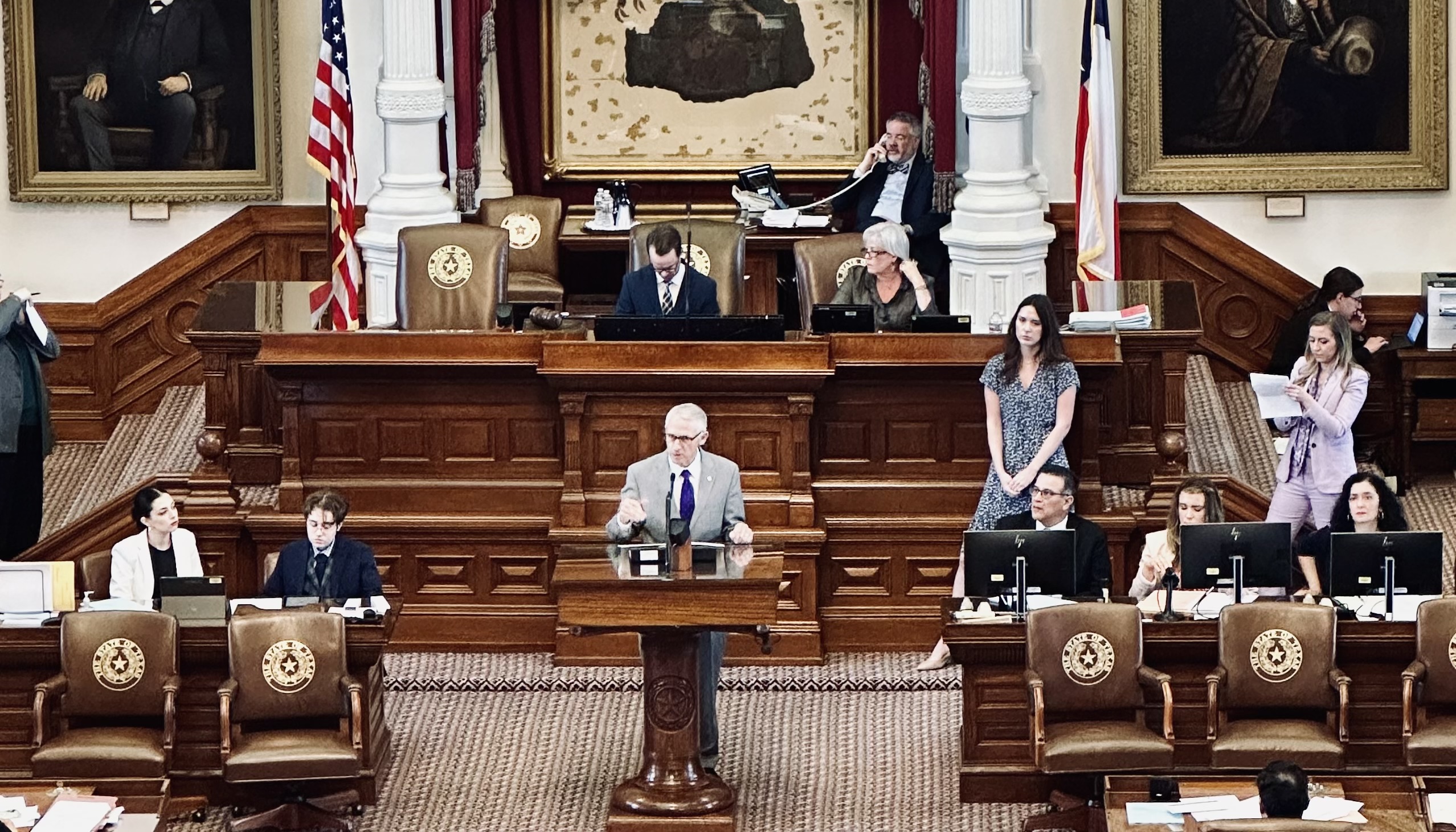HOU in ATX: Legislative Update – Week 14
Published Apr 17, 2023 by Taylor Landin
This week, Partnership President & CEO Bob Harvey testifies in support of a new economic incentive program; meanwhile, lawmakers move on key legislative items for our region.
House Ways & Means Hears Economic Development Incentive Bill
On Monday, the House Committee on Ways & Means heard testimony on House Bill 5 by Representative Todd Hunter (R-Corpus Christi), which would create a new state economic development program to keep Texas competitive.
Bob Harvey, the Partnership’s President & CEO, was among those who testified in support of the bill.
“The implementation of a new, transparent, and accountable school property tax abatement program gives Texas the opportunity to continue our economic momentum, create new jobs, and compete on a global scale,” Harvey said.
Testimony supporting the bill focused on the need for Texas to maximize the opportunity to grow our state’s economy and add high-quality jobs in local communities. While House Bill 5 was left pending in committee, there is significant support for the bill, with 56 legislators signed on as joint and co-authors and 250 chambers of commerce and economic development corporations in support.
Houston in Focus: At a luncheon in Houston on Tuesday, Governor Greg Abbott expressed confidence lawmakers will establish a new program this session to support continued business growth. “Houston is among the top cities in the entire nation for corporate relocations and expansion projects…We will continue building on that momentum by securing more economic development tools for Texas communities and businesses,” Abbott said.
Community College Finance Reform Bill Moves Forward
On Tuesday, House Bill 8 by Representative Gary VanDeaver (R-New Boston), which shifts the state’s community college financing system toward an outcomes-based and industry-aligned model, passed the House with a vote of 146 Yeas and 1 Nay.
The bill is inspired by recommendations from Texas Commission on Community College Finance, a commission tasked with providing solutions to help community colleges address Texas’ skills gap. The new community college financing framework prioritizes students by making higher education more affordable to attend, improving outcomes through funding incentives, and providing accelerated workforce development and training.
What’s next: House Bill 8 heads to the Senate. Meanwhile, the Senate’s version, Senate Bill 2539, could be voted out of the Senate Higher Education Subcommittee this week.
Brain Institute Bill Passes the House
On Tuesday, House Bill 15 by Rep. Senfronia Thompson (D-Houston) passed the House with a vote of 116 Yeas and 29 Nays. The bill establishes the Mental Health and Brain Research Institute of Texas, dedicating $3 billion over 10 years towards improving brain health research and would make research grants available to educational institutions, research facilities, entrepreneurs, and innovators.
According to research by the Meadows Mental Health Policy Institute, one in six Texas adults and one-third of Texas children suffer from a mental health disorder in a given year. Advancing research and providing improved care for mental health and brain diseases is critical to the physical and economic health of the region and state.
Houston in Focus: During House Bill 15’s hearing in the House Committee on Higher Education, the bill was supported by numerous area institutions including Houston Methodist, UTHealth, Rice University, Baylor College of Medicine, and Texas Children’s Hospital. Half of the Brain Institute’s 16 advising higher education institutions will be located in the greater Houston region.
Texas University Fund Voted off the Senate floor
On Tuesday, Senate lawmakers approved Senate Bill 19 by Senator Joan Huffman (R-Houston), appropriating billions toward establishing the Texas University Fund (TUF). The TUF is a long-term investment in the state’s public higher-education system and allocates funding to four public institutions in Texas: Texas State University, University of North Texas, Texas Tech University, and the University of Houston.
Houston in Focus: The infusion of new funding to the University of Houston school system will help to accelerate the university’s research capabilities, attract world-renowned professors and researchers, provide financial certainty, and strengthen UH’s recognition as a top national university.
What’s next: The bill continues to receive considerable support from lawmakers and key stakeholders and is expected to continue its steady march through the legislative process.
During the 88th Legislative Session, the Greater Houston Partnership will provide a weekly update on newsworthy items from Austin. You can view more policy news and archives of our weekly updates here. Subscribe here to get our weekly legislative updates
 The Houston Report
The Houston Report




















